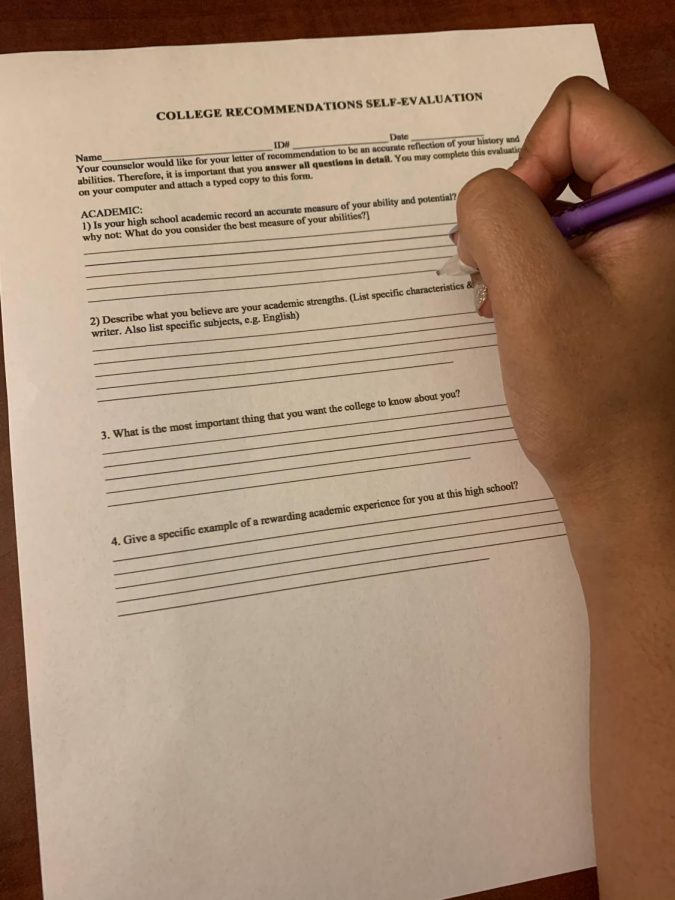The struggle is real: college applications
A WCHS student hands a recommendation letter template to give her teacher an idea of what to write.
November 13, 2019
As soon as AP exams are over, students flood their teachers rooms asking just one question: “Is there any chance you would be willing to write my teacher recommendation?” Teachers are used to this; many teachers have their own system to pick students and some have their own forms for students to fill out. But is all this really necessary?
According to a 2010 study from the American Psychological Association, it examined various letters of recommendation and found that two letters of recommendation written for two different people by one teacher were more similar than two letters of recommendation written for the same person by two separate teachers.
This should not be the case if recommendations were actually specific to the student. A majority of teachers use a template and general descriptions that apply to various students. Not all teachers have the time to individually handcraft every single one of their students a letter.
Despite this evidence, letters of recommendation remain popular in the college admissions process because admissions counselors need to evaluate aspects besides the academic skills of potential students. They need to know personal and professional characteristics, such as ethics and behavior to truly get to know the student. Along with college essays, recommendation letters should set one apart from other competing students amid all the similar GPAs and test scores.
According to insidehighered.com, philosophy professor Michael Huemer at Colorado University Boulder’s Center for Values and Public Policy argued that “the practice of soliciting letters of recommendation for academic positions is both foolish and immoral.”
Not only that, but many people request recommendations from teachers they had as a freshman, or teachers they only had for one semester. There are some students who do not even interact with the teachers they ask for recommendations. It is highly unlikely for these students to receive an accurate recommendation because of this.
Admissions counselors see hundreds of similar recommendations with the same cliche phrases and trite sentences over and over again. Instead of becoming a deciding factor, these letters are causing students to be mixed in with others. As these grow to be more and more ineffective, it is not worth it for teachers to go through so much effort.
Here at WCHS, asking for teacher recommendations is a stressful process for many. There are various teachers that do not give recommendations, forcing students to scramble to find other teachers to help them. Then there are teachers who cap their limit or others who have a lottery system. This whole process is very stressful and for some students that have a hard time communicating with their teachers taking them can cause an immense amount of stress for just a three minute conversation.
There are other ways for a student’s capabilities to be identified such as the CASPer® test, which rigorously tests a student’s people skills. A student interview with an alumni from the college can also determine how they are able to interact with others. There are many other ways for students to be tested to find out more about them, rather than receiving a very cliche letter from an old teacher of theirs.


